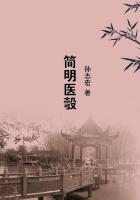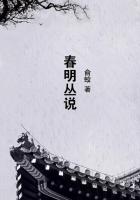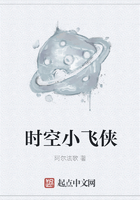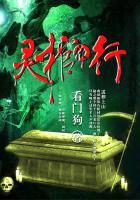"But to the hero, when his sword Has won the battle for the free, Thy voice sounds like a prophet's word, And in its hollow tones are heard.
The thanks of millions yet to be,"
"Who battled for the true and just, "And grasps the skirts of happy chance, And breasts the blows of circumstance.
"And lives to clutch the golden keys, To mould a mighty state's decrees."
The memorial of wrongs, which resulted in the Declaration of Texan Independence, was drawn up with statesmanlike ability by David G. Burnett, a native of New Jersey, a man of great learning, dignity, and experience; who, as early as 1806, sailed from New York to join Miranda in his effort to give Spanish America liberty. The paper need not be quoted here.
It gave the greatest prominence to the refusal of trial by jury, the failure too establish a system of public education, the tyranny of military law, the demand that the colonists should give up arms necessary for their protection or their sustenance, the inciting of the Indians to massacre the American settlers, and the refusal of the right to worship the Almighty according to the dictates of their own consciences. Burnett was elected Governor, and Houston felt that he could now give his whole attention to military affairs.
The seat of Government was removed to Harrisburg, a small place on the Buffalo Bayou; and Houston was sure that this change would cause Santa Anna to diverge from his route to Nacogdoches. He dispatched orders to the men scattered up and down the Brazos from Washington to Fort Bend--a distance of eighty miles--to join him on the march to Harrisburg, and he struck his own camp at the time he had specified.
In less than twenty-four hours they reached San Felipe, a distance of twenty-eight miles. The suffering of the women and children on that march can never be told. Acts of heroism on the part of the men and of fortitude on the part of the women that are almost incredible, marked every step of the way. The Senora sat in her wagon, speechless, and lost in a maze of melancholy anguish. She did not seem to heed want, or cold, or wet, or the utter misery of her surroundings. Her soul had concentrated all its consciousness upon the strand of hair she continually smoothed through her fingers. Dr. Worth, in his capacity of physician, accompanied the flying families, and he was thus able to pay some attention to his distraught wife; but she answered nothing he said to her. If she looked at him, her eyes either flamed with anger, or expressed something of the terror to be seen in the eyes of a hunted animal. It was evident that her childish intelligence had seized upon him as the most obvious cause of all her loss and misery.
The condition of a wife so beloved almost broke his heart.
The tragic death of his dear son was not so hard to endure as this living woe at his side. And when they reached San Felipe and found it in ashes, a bitter cry of hopeless suffering came from every woman's lips. They had thought to find there a little food, and a day's sheltered resting-place. Even Antonia's brave soul fainted, at the want and suffering around her. She had gold, but it could not buy bread for the little ones, weeping with hunger and terrified by the fretfulness of mothers suffering the pangs of want and in the last stage of human weariness.
It was on this night Houston wrote: "I will do the best I can; but be assured the fame of Jackson could never compensate me for my anxiety and mental pain." And yet, when he was told that a blind woman and her seven children had been passed by, and did not know the enemy were approaching, he delayed the march until men had been sent back to bring them into safety.
During these days of grief and privation Isabel's nature grew to its finest proportions. Her patient efforts to arouse her mother, and her cheerfulness under the loss of all comforts, were delightful. Besides which, she had an inexhaustible fund of sympathy for the babies. She was never without one in her arms. Three mothers, who had died on the road, left their children to her care. And it was wonderful and pitiful to see the delicately nurtured girl, ****** all kinds of efforts to secure little necessaries for the children she had elected to care for.
"The Holy Mother helps me," she said to, Antonia. "She makes the poor little ones good, and I am not very tired."
At San Felipe they were joined by nearly one hundred men, who also brought word that a fine company were advancing to their aid from Mississippi, under General Quitman; and that two large cannon, sent by the people of Cincinnati, were within a few miles. And thus hoping and fearing, hungry and weary to the death, they reached, on the 16th of April, after a march of eighteen miles, a place called McArley's. They had come over a boggy prairie under a cold rain, and were depressed beyond expression. But there was a little shelter here for the women and children to sleep under. The men camped in the open. They had not a tent in their possession.
About ten o'clock that night, Doctor Worth was sitting with his wife and children and Antonia in one corner of a room in a deserted cabin. He had the Senora's wasted hand in his own, and was talking to her. She sat in apathetic silence.
It was impossible to tell whether she heard or understood him.
"I wonder where Isabel is," said Antonia; and with the words the girl entered the room. She had in her arms a little lad of four years old, suffering the tortures of croup.
"Mi madre," she cried, "you know how to save him! He is dying! Save him! Listen to me! The Holy Mother says so"; and she laid the child on her knee.
A change like a flash of light passed over the Senora's face.















